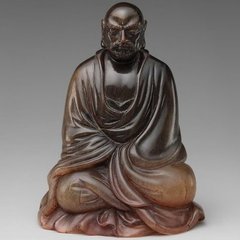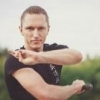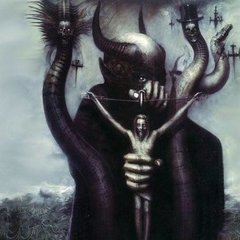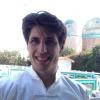Search the Community
Showing results for tags 'Taiji'.
Found 15 results
-
Hi all, I a student of Patrick Kelly leading a taiji group in Cambridge MA with a focus on internal development. www.freshpondtaiji.com for those interested. My teacher PK has some translated Daoists texts on his website here: https://worldwideway.org/daoists.html (and some other Sufi/Gnostic/Yogi quotes and other writings on the main page).
-
riding the never-ending-change-wave, i find myself here interested in yijing, qigong, taiji, art, poetry, theatre, zen, dao and like-minded stuff going to wall-flower a bit to watch the dance and feel the breeze till i have something to say best wishes and peace and thank you for having me
-
Hey everyone I have only been reading around for a couple of weeks but this forum does sound very fascinating. It is definitely very eye opening how little knowledge I have/had in the past 6 years or so since I have started practicing Taijiquan and Qigong. In a way I feel lucky as I have managed to experience and cultivate without being affected by too much speculations and expectations. What is your opinion about this matter? How long one should practice first before looking into the theories? Or should we all have a basic understanding of (the energetics of) our practice?
-
Apologies for a long winded post. I waned to enquire whether any of you have thoughts on combining strength training with internal arts? Let me explain what I mean by that. The style of taijiquan I practice emphasizes letting go of muscular strength (li) and rather use jin - I know different people/schools have different ideas about what jin is. In our system it is considered to be the power generated by accelerating Qi into the bone marrow and the lower Dantien. So we store power by condensing Qi into the born marrow - my Sifu says it is like burning gas to generate horse power. Eventually it is generated by directing incoming force into the LDT, which results in power/force rippling out like how a stone is dropped into a pool generates ripples. This ripple effect is capable of returning incoming force, and therefore ends up looking mysterious and woo woo. My experience is, that it took me a long time to get it to a point where it works, to drop my tendency to use physical strength (almost 20 yrs of daily practice now). There is a sense of freedom and relaxation, along with the sense of unbroken sheath of cotton or silk/satin under the skin. I think many of you know what I’m referring to. Whenever I try to add physical conditioning to this, I feel suffocated; like the muscles develop in strength and begin to strangle the other type of ability generated in the body. So I stopped physical training several years ago. I revisit from time to time but give up after a few weeks because of what I described. As I’m growing older, I’m putting on more weight, as the metabolism is slowing down. I don’t think I can lose weight without adding some physical conditioning. What do the members on this group do? How do you balance your internal cultivation with physical conditioning?
-
Just signed up again. (had to)! After about 20 years of practicing traditional forms of Tai Chi. I've started doing the 24-Form Yang Style. The idea is to start teaching again. I followed a link to the forum and read some interesting posts. So, Thanks Faz
- 1 reply
-
- 2
-

-
- yang style
- taiji
-
(and 4 more)
Tagged with:
-
The book has been well edited and polished, and has been republished on Amazon. The Magus of Seattle Note: This is a new title, the original version is still available under the original title: A Lineage of Dragons The Magus of Seattle - The hidden Taoist Immortal who was Bruce Lee's uncle and kung fu teacher, and a life journey from the mundane to the supra normal. A true story of Masters and Students of the Mystical Life Force Martial Arts and beyond This is about the powerful qigong master and Taoist immortal who was Bruce Lee’s uncle, mentor, and main kung fu teacher. A true account of the hidden Taoist spiritual practices, it describes the nei kung he used to become one of the most powerful, and the amazing things experienced by the author. This book describes the Taoist spiritual path of the warrior wizard, a rare and powerful physical, emotional, and spiritual cultivation system. It describes some of the other amazing students of this master, some of who are reincarnations of dragons from the spirit realm. Contents 1 - The Andes Mountains 2 - The Art of Flying 3 - The Bruce Lee connection 4 - “We are Dragons” 5 - Early Adulthood 6 - Sai Baba 7 - Meeting the Master 8 - Practicing the Path of Power 9 - Enlightenment Experience 10 - My teaching 11 - The Star Wars Connection 12 - The Path of the Warrior Wizard 13 - The Taoist Path of the Immortal 14 - Chi Kung vs. Nei Kung 15 - Masters of the Way
- 169 replies
-
- 11
-

-

I'd appreciate if anyone experienced in Xingyi and/or Baguazhang could chime in!
Piyadasi posted a topic in Welcome
. -
Hello everyone! I have been studying Tai Ji for over 12 years. Started at a San Diego, CA school, Jing Institute, learning Yang 24. I progressed through all compulsory forms (Yang 40, Sun 73, Wu 54, Chen 56, Competition Forms, Chen Sword, Broadsword, Staff, and that weird Kung Fu/Tai Ji Fan), won a few local tournaments. Had to move to Los Angeles for college where I practiced Karate, JJJ, Systema, Wing Chun and Bujinkan (Ninjutsu style). I never missed a week of Tai Ji practice since I started. Tai Ji is my rock. My central philosophies regarding existence, martial arts, self defense, health and leading a good life really took hold thanks to ideas and concepts I learned through Tai Ji which were derived from Taoism and Buddhism. I have been hunting for fruitful discussion conceptual discussion and have had little luck. I never aim to offend, but I am not afraid to voice my opinion. My ideal to only speak truth from my perspective and I am happy to hear other points of view. My words are just words and I would never force anyone to take my position. So please know that I do my best to begin a conversation from a place of agreement and attempt to find the point at which I and another disagree before providing evidence for my position. No need to defend a position if we both agree, right? Thank you for maintaining this forum and let us understand each other so we can grow together! -Tie Xiong Ji
-
Motion in Stillness There’s motion in stillness The old master said As the student stood steadfast A million thoughts racing through his head As he stood steadfast holding the pose his mind churning frantically and his anxiety rose he stood for five minutes every nerve screaming in pain he said to himself No never! Never ever again But such is the the lot Of folks of his kind Once something enters It doesn’t exit his mind So he stood again the next and the day after that and everyday since that day in an unseemly half squat As the days turned into weeks and the weeks into months what used to bring tears hardly even made him grunt Then one day he realized his mind had become still and his thoughts fell to the bottom like an ungainly swill what remained afloat was a crystal clear thing it was bereft of everything yet it wasn’t nothing Then the motion he noticed rose from its depth it was the movement of spirit it floated and leapt Then he remembered what the old master said there’s motion in stillness and it’s not the junk in your head
-
Here's a hypothetical topic of discussion (and knowledge mining) -- If you were given the choice and ability to create a Daoist community (let's say in the US), what would you consider to be integral parts of such a community? How would you go about building one? Is such a place even practical or possible in today's world?
-
A thought has been pounding on the doors of my intellect since many years, but I do think it's becoming more pronounced and emphatic off late. The cautionary advice from a little voice in my head is "What's the rush? Relax, Enjoy, move when you have to". The context being - cultivation and practice. Yes, we have to practice. For some of us it is an imperative that cannot be controlled. Not that I'm saying it should... But to practice with a set time window (I'm going to practice 90 minutes everyday) somehow dilutes the process of practice. Practice should last as long as we can flow, vibrate with the energy. My teacher cautioned me - He said "if you practice with a lot of things on your mind, about things that need to be done, chores that need to be tended to, your Qi will get "programmed" to be agitated in a similar manner. If you want the full benefit of your practice, just be patient, let it happen. If you have to stand in preparation form for 90 minutes, so be it. It can be the most powerful practice you'll have ever done..because you will find stillness and the motion that lies within" This I feel is a central concept of being Wei Wu Wei. To not be in a hurry, to be relaxed...enjoying the present moment. Then we will be in harmony within ourselves, and also the universe.
- 3 replies
-
- 7
-

-
- wei wu wei
- taiji
-
(and 1 more)
Tagged with:
-
About strength training in Taijiquan: "David Gaffney (co-author of the excellent Chen Style Taijiquan) has an article on chen tai chi strength training (PDF) that mentions methods such as stone lifting, pole shaking, the taiji bang (short stick), taiji ball (akin to a medicine ball), and training with intentionally heavy weapons: "While it may come as a surprise to many, strength training is not a new phenomenon in Taijiquan. In the past, it represented one aspect of an all-encompassing training process. In Chenjiagou, within the garden where 14th Generation Chen clan member Chen Changxin is said to have taught Yang Luchan, founder of Yang style Taijiquan, can still be found an eighty kilogram stone weight that they are said to have regularly trained with. Traditional strength training methods such as pole shaking and practicing with heavy weapons continue to be used up until today. ... Lifting heavy stones is done as a means to training the waist and lower body. Chen Ziquiang explains "the strength training method is highly specialized. You are not training to develop 'stupid strength' (brute or localised strength). This is training strength in the waist. Your hand strength is like the hook you use when you are towing a car. You have to remember that your hand is the hook. Your strength is coming from the waist and how you push into the ground, combining the strength of the car and the rope. The hook is only the implement that connects the two. So when you lift the big rock, it is the strength of the legs and waist...".
-

Daoist school Zhen Dao Pai: video and photo; training in London.
Vitalii posted a topic in Daoist Discussion
Taijiquan / Xingyi quan / Qigong / Dao Yin / Inner Alchemy in London - http://zhendaopai.com/timetable/






.thumb.gif.cfa68075e6611ab4816c0a95919a06ff.gif)


